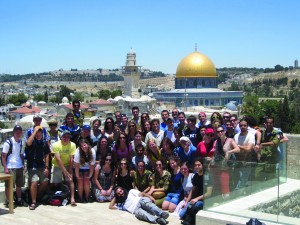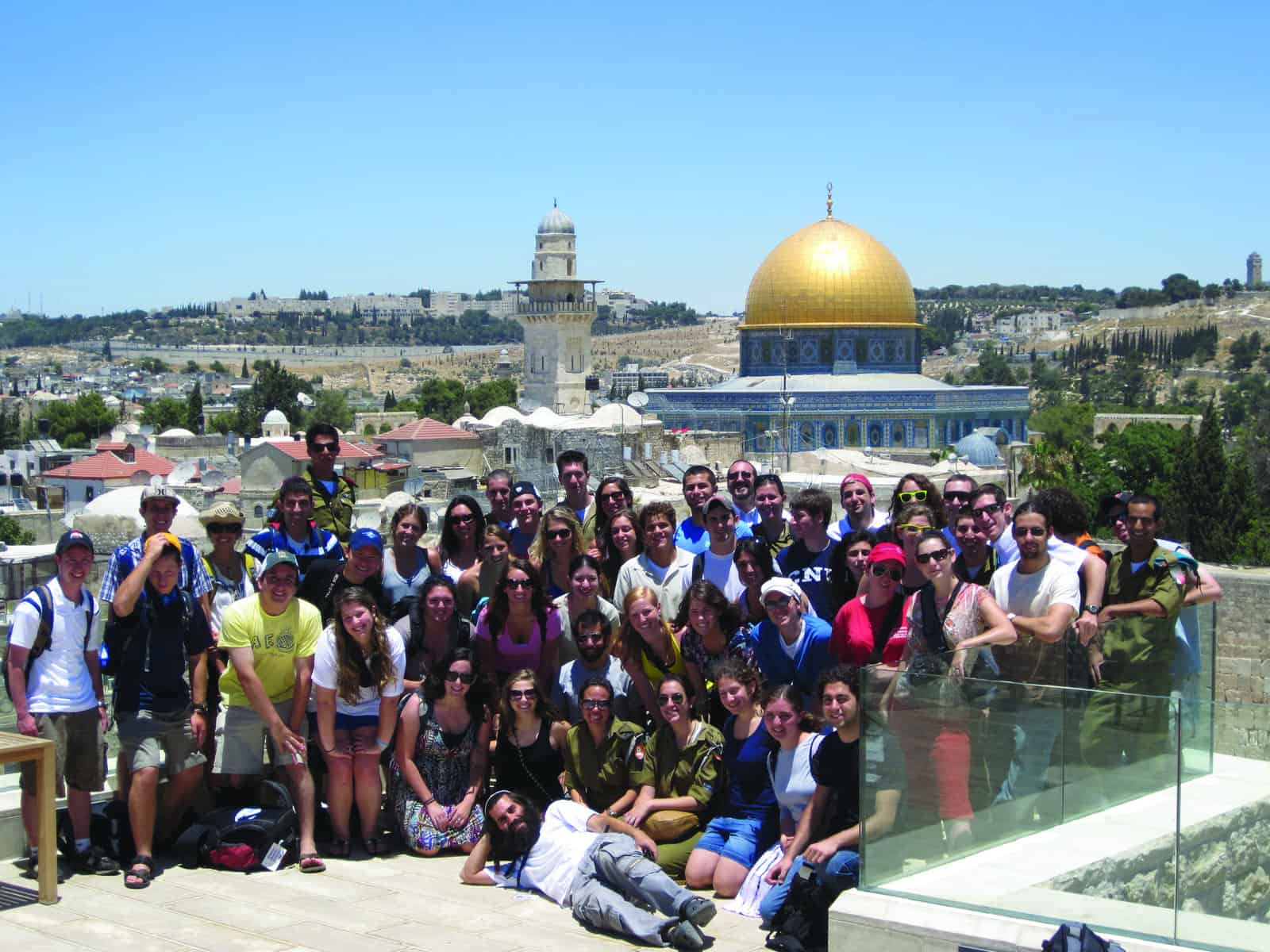 A free, 10-day trip to Israel sounds like an easy sell. College students live to drink beer, eat ethnic foods, and hook up with peers on the beach, any beach. It might surprise you to know that convincing Jewish kids to indulge in Israel’s unique magic on someone else’s dime is not as easy as that. However, Rabbi Gershon Litt gets the job done. In 15 years, the ODU, CNU, and William & Mary Hillel director has led almost 30 trips, witnessed countless epiphanies, and inspired many return visits that resulted in permanent stays. Litt’s mission to bring young Jews home to Israel is as clear as the Mediterranean Sea.
A free, 10-day trip to Israel sounds like an easy sell. College students live to drink beer, eat ethnic foods, and hook up with peers on the beach, any beach. It might surprise you to know that convincing Jewish kids to indulge in Israel’s unique magic on someone else’s dime is not as easy as that. However, Rabbi Gershon Litt gets the job done. In 15 years, the ODU, CNU, and William & Mary Hillel director has led almost 30 trips, witnessed countless epiphanies, and inspired many return visits that resulted in permanent stays. Litt’s mission to bring young Jews home to Israel is as clear as the Mediterranean Sea.
After 10 days abroad, young travelers return to Virginia with a new perspective that often leads to renewed Jewish observances and making Aliyah. “I have one student who had very little Jewish identity and not a favorable view of the Israeli political situation,” says Litt. “She ended up becoming much more observant, marrying a guy who wanted to be a lawyer in Israel, made Aliyah, and is now married, with a baby, living outside of Jerusalem. Another student who came on the trip and towards the end of the trip decided that she wanted to spend more time in Israel, so she stayed in Israel, came back to Norfolk for a short period of time, and then went back, went to the Army, and made Aliyah. She is now living in Israel. I have countless stories of people who started lighting Shabbos candles and just that has kept the flame alive.”
In Virginia, Birthright Israel is funded by United Jewish Federation of Tidewater, private donors, and the State of Israel. The 10-day excursion costs $5,000 per person, but the student pays next to nothing. Birthright is designed to stoke and strengthen Jewish identity. Providing an immersive cultural, political, and social experience fosters an attachment to the land of Israel that even social media can’t trigger.
Israeli infusions of this type are long lasting and can have an immediate, or slow and gradual onset.
“Our goal is to allow Jewish students to experience Israel and be inspired by the land, history, and its people. These are just things they always heard about in synagogue. Then they get to Israel and there are so many kinds of Jews at the Western Wall, dancing and celebrating Shabbat. They experience the religion and culture in a totally unique way. This gives students an appreciation they couldn’t have gotten otherwise.”
Birthright Israel also puts the situation in Israel on students’ radar without bias.
“Their assumptions are completely challenged,” says Litt “Some leave more confused but also with a heightened awareness of the complexity of the situation. They see for themselves what the whole conversation is really about, not from the media, but from those really living it.”
The Mifgash is a powerful Birthright Israel weapon used to challenge American’s filtered perceptions. “We bring eight Israelis on the trip as civilians not soldiers, in the capacity of participant. They live and eat together. Follow the same rules. They ride camels and hike along the waterfalls, and dance at the Wall. This gives Americans an opportunity to ask them about intelligence or combat. This new point of reference is very inspiring.”
A Masada overnight trip sounds dreamy, but it can be jarring in an unexpected way. “Meditation in the desert under the stars can bring up intense emotions,” says Litt. “People express things like, ‘I see my priorities differently. I see how I treat myself and others….maybe I need to re-evaluate my relationships.’ For some, this experience can bring up issues they never thought would come to the forefront.”
Pot-stirring is a fundamental right of Birthright Israel. In the Jewish identity exercise, the group is given 20 statements in a box. Topics include marrying a Jew; keeping kosher; celebrating holidays; speaking Hebrew’ lighting Shabbos candles; making Aliyah; and joining the army. They’re asked to prioritize them. This triggers tremendous internal turmoil as well as arguing and debating among each other.”
That’s the whole point. “They fight it out and leave more in touch with who they are as Jews, thinking ‘maybe my decisions are not what I should be considering.’”
“I’m elated if I know their life trajectory is altered in some way as a result,” says Litt. “It can be a small psychological change. Some have real revelations with me in Jerusalem. ‘What am I doing with my life?’”
Most students come for the falafel but leave with a hunger for more. That’s where the program consistently gets high grades.
This is part of a series of articles spotlighting local and overseas partner agencies that are beneficiaries of the United Jewish Federation of Tidewater’s annual Community Campaign.
– Lisa Richmon

